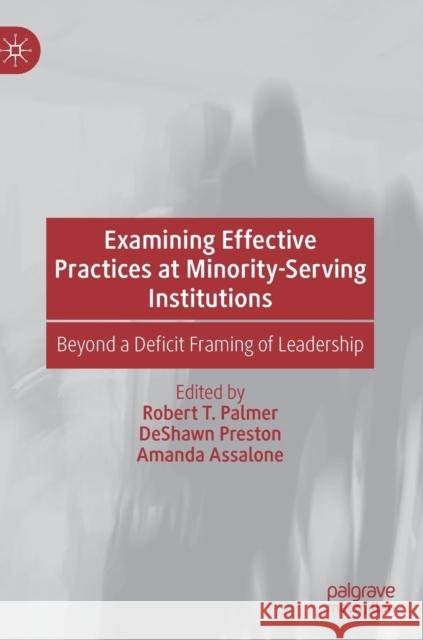Examining Effective Practices at Minority-Serving Institutions: Beyond a Deficit Framing of Leadership » książka
topmenu
Examining Effective Practices at Minority-Serving Institutions: Beyond a Deficit Framing of Leadership
ISBN-13: 9783030166083 / Angielski / Twarda / 2019 / 207 str.
Kategorie:
Kategorie BISAC:
Wydawca:
Palgrave MacMillan
Język:
Angielski
ISBN-13:
9783030166083
Rok wydania:
2019
Wydanie:
2019
Ilość stron:
207
Waga:
0.52 kg
Wymiary:
21.01 x 14.81 x 1.91
Oprawa:
Twarda
Wolumenów:
01
Dodatkowe informacje:
Wydanie ilustrowane











